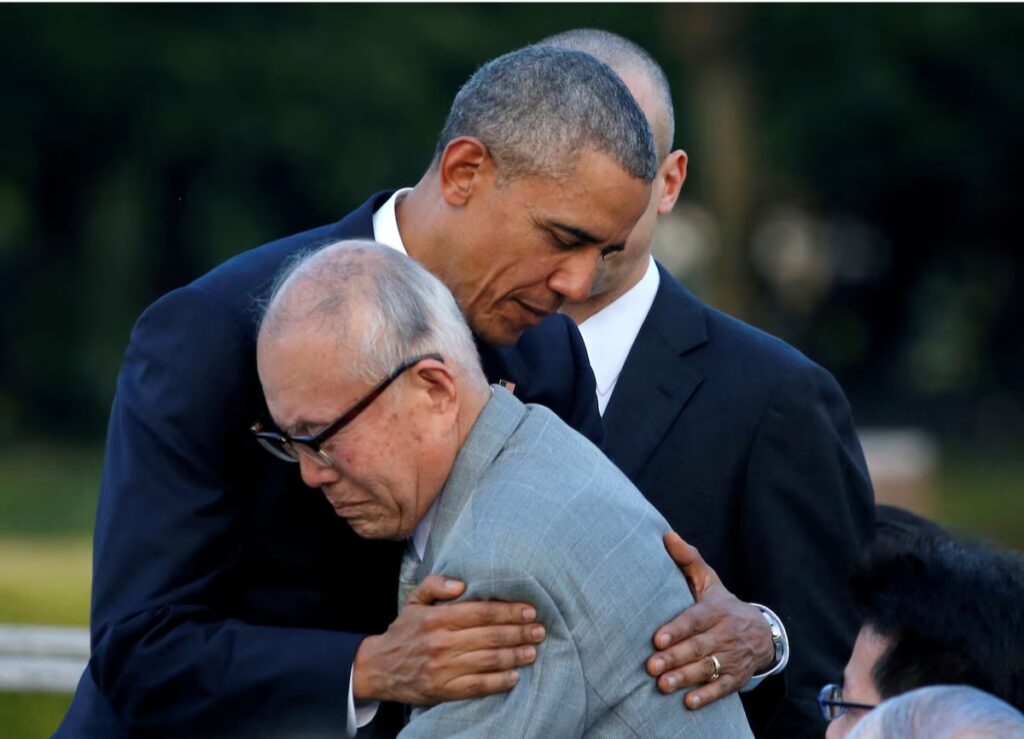Reuters

TOKYO – A Japanese man who survived the nuclear bombing of Hiroshima and was decades later hugged by Barack Obama during the then U.S. President’s visit to the city, said he hoped Friday’s Nobel Peace Prize would help put a focus on nuclear disarmament.
The Norwegian Nobel Committee awarded the prize to the Nihon Hidankyo group of atomic bomb survivors for its work warning the world about the dangers of nuclear arms and bearing witness to the suffering unleashed upon Hiroshima and Nagasaki, the only two cities to have ever sustained such attacks.
The award comes a year ahead of the 80th anniversary of the dropping of the bombs by the United States in August 1945, which forced Japan’s surrender in World War Two.
Shigeaki Mori, who was eight years old when the bomb flattened Hiroshima, was embraced by Obama during his visit to the atomic bomb memorial site in 2016, a moment that became a defining image of that visit.
When contacted by Reuters and asked if he thought the Nobel Prize would bring greater awareness to the issue of denuclearisation, the octogenarian Mori simply replied: “Yes”.
He said he was being inundated by calls for interview requests and did not comment further.
In an interview last year, Mori told Reuters he had been knocked unconscious by the blast. When he came to, he saw a woman holding her own entrails, asking for the nearest hospital.
As an adult, he began a multi-decade quest to find how many victims were cremated at his school playground. His work also unearthed the identities of 12 Americans who died in the bombing.
Obama, who spoke of the “shared responsibility to look directly in the eye of history” when he visited Hiroshima, and praised Mori’s work in his speech. Obama avoided any direct expression of apology for the bombings, something many Japanese feel is overdue.
Many nuclear bomb survivors – known as “hibakusha” in Japanese – although advanced in age, and their numbers dwindling, have tried to keep the legacies of Hiroshima and Nagasaki alive, seeing the events in the cities as more than just moments of history, but calls for change.
That call appears to have resonated. Joergen Watne Frydnes, chair of the Norwegian Nobel Committee, warned that nuclear nations should not contemplate using nuclear weapons.
“I just don’t want all of this to end up being a dream,” Mori told Reuters last year, referring to his hopes for disarmament.
